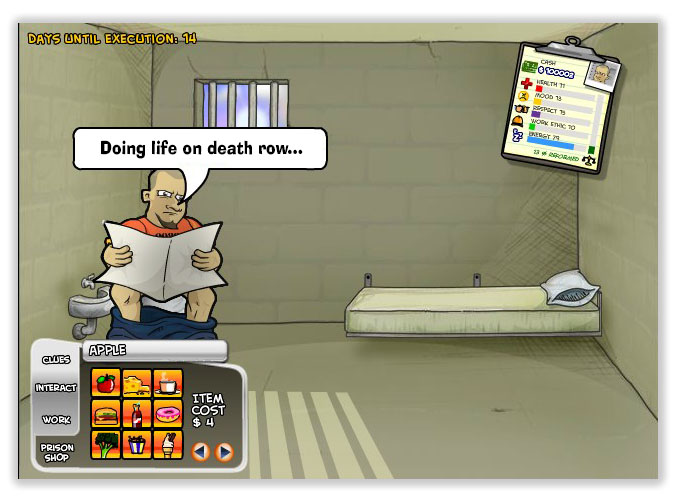We post news and comment on federal criminal justice issues, focused primarily on trial and post-conviction matters, legislative initiatives, and sentencing issues.

GAO PUTS BOP ON CRITICAL LIST
The Government Accountability Office last week added the BOP to its “high risk” list of “government operations with vulnerabilities to fraud, waste, abuse, and mismanagement, or in need of transformation.”
 Federal prisons were the only program added to the 2023 list, which is updated every two years. The GAO has seen “good progress in certain areas due to congressional and executive branch actions, but there are still serious, very consequential problems that need to be addressed,” GAO head Gene Dodaro recently told the Senate Homeland Security and Governmental Affairs Committee. “We’re adding management of the Bureau of Prisons, there’s been problems with staffing, which has led to some concerns about inmate and staff safety and also their efforts to evaluate programs that are intended to help deal with the recidivism issue.”
Federal prisons were the only program added to the 2023 list, which is updated every two years. The GAO has seen “good progress in certain areas due to congressional and executive branch actions, but there are still serious, very consequential problems that need to be addressed,” GAO head Gene Dodaro recently told the Senate Homeland Security and Governmental Affairs Committee. “We’re adding management of the Bureau of Prisons, there’s been problems with staffing, which has led to some concerns about inmate and staff safety and also their efforts to evaluate programs that are intended to help deal with the recidivism issue.”
GAO first identified BOP management as an “emerging high-risk issue” in March 2021. Since then, GAO reports, the BOP has addressed 22 GAO recommendations, leaving 28 recommendations still on the table. What’s more, Charles Johnson, managing director of GAO’s homeland security and justice team, told Congress the BOP’s staffing level remains down 15%.
Speaking of management failings, the Associated Press reported last week that an inmate whose death sentence was commuted in 2019 remains housed on death row at USP Terre Haute.
 Four years later, AP reported, the BOP has not moved him to a less restrictive unit. Asked about the prisoner’s continued placement on death row, a Dept of Justice official told AP that “the Bureau of Prisons is considering [the inmate’s] designation determination.” At least the BOP is taking the time to carefully consider whether someone without a death sentence should be housed somewhere other than death row.
Four years later, AP reported, the BOP has not moved him to a less restrictive unit. Asked about the prisoner’s continued placement on death row, a Dept of Justice official told AP that “the Bureau of Prisons is considering [the inmate’s] designation determination.” At least the BOP is taking the time to carefully consider whether someone without a death sentence should be housed somewhere other than death row.
AP said that the case “illustrates chronic bureaucracy in the prisons system and the difficulties in getting anyone off death row.”
“How can I not get this guy off death row?” federal defender Monica Foster said in a recent interview. “Well, I did get him off death row. But why can’t I physically get him off death row?”
Meanwhile, after a recent disturbance at FCI Miami, a BOP low-security facility, Miami TV station WTVJ reported, “multiple sources from inside the facility [said] that more than 100 weapons were found…” A prison security expert told the station, “Discovering a hundred weapons in a search following something like this would signal the administration. It would signal me, if I were the administrator, to look into my search processes.”
The station said that a 2019 Occupational Safety and Health Administration report likewise recommended that the BOP “increase number of searches for weapons, cellphones and contraband.”
 Last week, the BOP fired a shot across the bow at illegal cellphones, as ubiquitous in prisons as spring flowers in the garden. The U.S. Attorney for the Eastern District of North Carolina said that six inmates housed at three different facilities at the FCC Butner complex have been criminally charged with possession of contraband cell phones.
Last week, the BOP fired a shot across the bow at illegal cellphones, as ubiquitous in prisons as spring flowers in the garden. The U.S. Attorney for the Eastern District of North Carolina said that six inmates housed at three different facilities at the FCC Butner complex have been criminally charged with possession of contraband cell phones.
If convicted, each inmate faces up to an extra year of prison for possessing a cellphone and disqualification for First Step Act credits and the 365 days sentence credit for eligible programming participation.
U.S. Attorney Michael Easley said, “By indicting these six inmates at FCC Butner, we hope to send a clear message to the inmate population that the possession of cellphones will never be tolerated at FCC Butner.”
Govt Executive, Management of the Federal Prisons System Is Added to GAO’s High-Risk List (April 20, 2023)
GAO, Efforts Made to Achieve Progress Need to Be Maintained and Expanded to Fully Address All Areas (April 20, 2023)
AP, Inmate stuck on US death row despite vacated death sentence (April 16, 2023)
WTVJ, Video Shows Disturbance That Led to Lockdown at Federal Correctional Institution in Miami (April 21, 2023)
DOJ, Six Federal Inmates Indicted for Contraband Cell Phones (April 20, 2023)
– Thomas L. Root





